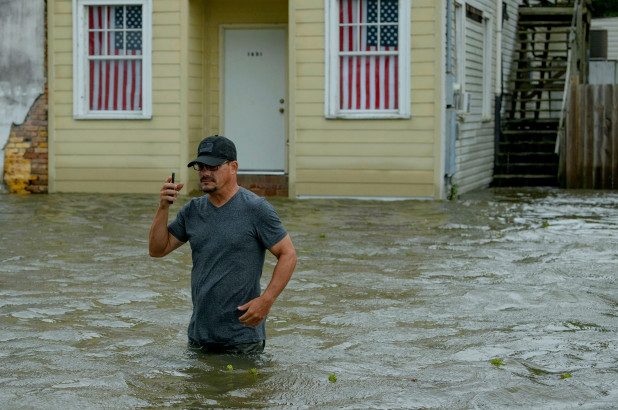Tropical Storm Barry, which crashed into Louisiana as a Category 1 hurricane over the weekend, may still bring heavy rain and flooding to the Gulf Coast for days. Barry largely spared New Orleans, which was expected to feel the brunt of the storm, but Louisiana and the Gulf Coast still could get up to 20 inches of rain in some areas.
Life-threatening flash floods and possible tornadoes are still possible in Louisiana, Arkansas, Mississippi, southeast Missouri, and western Tennessee, the National Hurricane Center warns. Barry is the first hurricane of the 2019 season, which lasts from June 1 to Nov. 30.
Mortgage financing giants Fannie Mae and Freddie Mac have announced mortgage help for homeowners and those who work in the affected areas. Fannie and Freddie borrowers who are affected by the storm may stop making mortgage payments for up to 12 months. During that time, owners will not incur late fees or face a delinquency notice.
Both Freddie and Fannie relief options include automatically suspending or reducing homeowners’ mortgage payments immediately for up to 90 days for those affected by the disaster, even for homeowners who do not immediately contact their lender.
But “once safe from this dangerous storm, we strongly encourage homeowners whose homes or places of employment have been impacted by the storm to call their mortgage servicer—the company to which borrowers send their monthly mortgage payments—to learn about available relief options,” says Yvette Gilmore, Freddie Mac’s vice president of single-family servicer performance management. “We stand ready to ensure that mortgage relief is made available.”
Source: “‘Life-Threatening’ Floods, Tornadoes Still Possible as Barry Drenches Gulf Coast,” NBC News (July 14, 2019); “Louisiana Is Cleaning Up After Tropical Storm Barry Brought Rain, Wind, and Flooding,” CNN (July 15, 2019); Fannie Mae; and Freddie Mac













